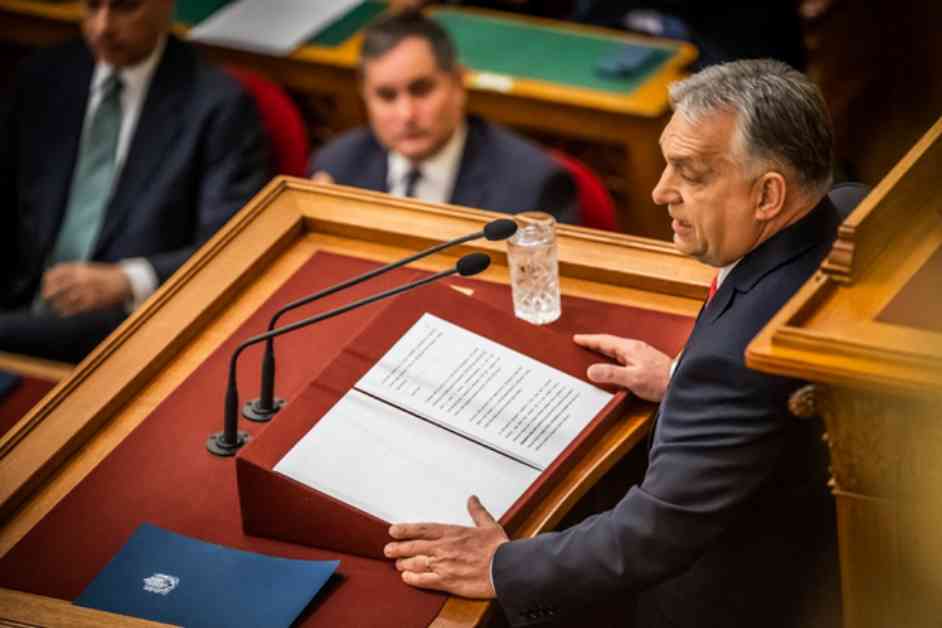Hungarian Prime Minister Viktor Orbán recently made headlines by announcing that Hungary would be conducting a poll to gauge public opinion on whether Ukraine should join the European Union. This move comes amidst Orbán’s vocal opposition to Ukraine’s EU bid, with the Prime Minister even linking Kyiv to Moscow’s invasion of Ukraine. Despite being the only EU member state to withhold support for arming Ukraine, Orbán’s government is now looking to involve the Hungarian populace in the decision-making process regarding Ukraine’s potential EU accession.
Orbán’s Controversial Announcement
Orbán’s decision to hold a poll on Ukraine’s EU accession has sparked controversy and raised questions about the motivations behind this move. The Hungarian Prime Minister’s history of using national consultations to gather public opinion has come under scrutiny, with concerns raised about the vague and potentially misleading nature of the questions posed in previous polls. This has led to doubts about the legitimacy and accuracy of the results obtained through such consultations.
Balázs Orbán, an advisor to the Hungarian Prime Minister, emphasized the importance of making a responsible decision regarding Ukraine’s EU bid, highlighting the need for public involvement in such a significant matter. The upcoming poll will provide Hungarian citizens with a unique opportunity to have their say on a crucial issue that could have far-reaching implications for both Hungary and Ukraine.
Concerns and Criticisms
Despite the seemingly democratic nature of conducting a public opinion poll, there are concerns about the potential impact of Orbán’s national consultation on the outcome. Reports from Hungarian media outlets have raised doubts about the effectiveness and reliability of previous consultations, citing low voter turnout and questionable survey practices. For instance, a recent poll on “sovereignty protection” presented voters with a polarizing choice between supporting the government’s anti-EU stance or facing the prospect of living in a “migrant ghetto.” Such divisive tactics have led to skepticism about the true intentions behind Orbán’s public consultations.
The decision to hold a poll on Ukraine’s EU accession is likely to further solidify Hungary’s opposition to Kyiv’s bid for EU membership. By involving the Hungarian public in this decision-making process, Orbán’s government may seek to justify its stance on Ukraine’s European aspirations. However, the methods and outcomes of previous national consultations raise concerns about the transparency and fairness of such polls, casting doubt on the credibility of the results that will emerge from this latest initiative.
As the countdown to the poll begins, all eyes are on Hungary to see how this public consultation will unfold and what impact it will have on the future of Ukraine’s relationship with the European Union. The outcome of this poll could shape the course of diplomatic relations between Hungary and Ukraine, with far-reaching implications for both countries and the broader European political landscape. Stay tuned for updates on this developing story as the Hungarian public prepares to voice their opinions on Ukraine’s EU accession.

















